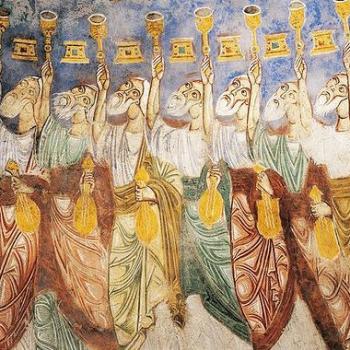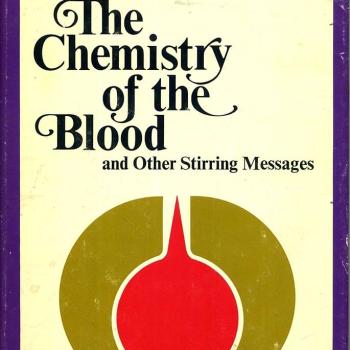“Progressive Evangelicals”: Where Are They Now?
Recently I received two relatively new, very similar books (complimentary copies provided by publishers). Their similarity lies in the subject they both cover: “progressive evangelicals.” They focus on progressive (some would say “liberal”) evangelical social and political beliefs especially among younger evangelicals in the 1960s and 1970s (some before, some after).
The two books are: The Moral Minority: The Evangelical Left in an Age of Conservatism by David R. Swartz (University of Pennsylvania Press, 2012) and Progressive Evangelicals and the Pursuit of Social Justice by Brantley W. Gasaway (University of North Carolina Press, 2014). I would say there is an overlap of these books of about sixty percent. They are about the same length (300 plus pages). Swartz’s book is a bit more scholarly while Gasaway’s is a bit more popularly written. (By no means do I intend that as a value judgment on either book or either author! It is only meant to indicate ease of reading and depth and detail of treatment of the subject.)
Reading these two books is like reading about my own journey in evangelicalism. I grew up in an extremely conservative evangelical context where many people sympathized with the John Birch Society, despised John F. Kennedy and Humbert H. Humphrey, grieved over Barry Goldwater’s loss to Johnson (1964) and hailed Richard Nixon as a fellow evangelical and near political messiah. I will never forget the day Nixon’s motorcade drove from the airport to downtown in front of the fundamentalist Bible college I attended. Many of the students, faculty and staff (I among them) stood for about an hour next to the street with a huge banner that read “God Bless You, President Nixon!” We were “blessed” that he rolled down the window of his limousine and smiled and waved at us.
Then came Watergate, the disaster of America’s increasing involvement in Vietnam, “Kent State,” and revelations/dawning awareness (at least in my mind) of government corruption, enduring racism in America, atrocities committed by Americans in Vietnam. As I began to question the fundamentalism of my upbringing I began also to question the political and social views of my spiritual mentors. Sometime toward the end of my Bible college student career I learned about what has been called “The Great Reversal” of evangelical social activism in the late nineteenth and early twentieth centuries. I stumbled on it on my own; it wasn’t taught by my college professors. “The Great Reversal” was, of course, the change from social progressivism among evangelicals to disengagement from political-social activism to conservatism. Both of the books mentioned above and under consideration here mention this as a factor in the rise of young evangelical progressivism in the 1960s and 1970s. Books by evangelical scholars such as Timothy Smith, David Moberg and Donald Dayton revealed that throughout much of the nineteenth century our own evangelical ancestors had been in the forefront of abolition of slavery, movements for equality of women with men, and even redistribution of wealth. I began to ask myself what happened to that evangelical heritage?
During seminary (mid-1970s) I began to read a magazine both books credit with being a major factor in the rise of “the evangelical left” in the 1970s: The Post-American (which eventually evolved into Sojourners). I remember that I somehow obtained and read every issue. At one time I owned every issue of The Post-American. I also came into contact, at a distance, with the World Christian Liberation Front—reading some of their literature which I found in the seminary’s library. Some of my seminary professors pointed me to Mark Hatfield as an example of a theologically conservative and evangelical politician who was also socially and politically progressive. I learned about Tom Skinner and Samuel Escobar, evangelicals critically sympathetic with Black Theology and Latin American Liberation Theology. I took a course on Liberation Theology at a Lutheran Seminary’s extension on the campus of a Lutheran College near my seminary. Gradually my mind began to change; I began to identify myself socially and politically with this “evangelical left” movement while maintaining my basically conservative and evangelical theological beliefs and spirituality.
Reading these two books is for me like the proverbial trip down memory lane. I learned some details from them, but for the most part they merely remind me of people, publications, events, organizations, ideas that I imbibed and mostly agreed with in the 1970s. Both books raise the fascinating question of how “evangelical” came to be a synonym for “political conservatism” in the 1980s and beyond and point to Jerry Falwell and other fundamentalists like him who hijacked the label “evangelical” and convinced the media to identify it with their hyper-conservative theologies and social-political views. Both books tend to “hype” Jim Wallis as the key figure in the evangelical left—especially over the “long haul.” He was, perhaps, the organizing genius of the movement, but I personally found Ron Sider to be the more attractive thinker within the movement. That’s not to pit them against each other; they were and always have been co-leaders in progressive evangelicalism. I think my favoritism toward Sider comes from my gradual turn toward an Anabaptist vision of prophetic Christian social concern for peace and justice.
I would say that one of the greatest disappointments in my life as an evangelical theologian has been the popular misconception of all evangelicals as socially and politically conservative. I have friends who simply cannot understand or accept that an evangelical Christian can be progressive. Even after I mention Mark Hatfield to them (and they are old enough to remember him or at least know about him) they turn right around and use “evangelical” as a label for “Religious Right” attitudes and activism in the public square.
My hope is that somehow these two books will begin a shift in public perception of evangelical Christianity that distinguishes it from any one particular political party or platform and that honors its rich diversity.














